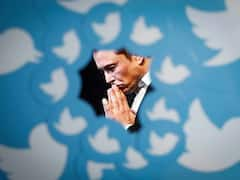Opinion: Why Is Gen Z Burnt Out? They Are Struggling In The Workplace, But There Are Ways Employers Can Help
Gen Z employees, comprising 50% of those suffering burnout, have unique mental health needs. They crave a supportive workplace with empathetic leaders who model open dialogue about mental health.

By Dr Ashwin Naik
Being relatively new entrants to the workforce, it’s staggering to see that about 50% of Gen Z employees around the world are burnt out. By 2025, a projected 27% of all your employees will be Gen Z. They’re also the face of innovation, and when nurtured with care, can be truly valuable assets for an organisation. Gen Z employees have their own needs, in terms of both physical comfort and mental health, and perception about the workplace. It is increasingly getting evident that employers can no longer take this generation for granted, and have to listen and pay heed to their demands and requrements.
Understanding Digital Native Gen Z Employees
Mark Zides, the CEO of CoreAxis Consulting, an award-winning Learning and Development and Talent Management firm, once eloquently explained who Gen Z employees are, and how to understand them, without alienating them. "They are digital natives, and they don’t fit into any traditional definition of an employee. They’re impatient to grow, have radically different expectations of work, their manager, and the environment. They also have a strong urge to stand up for social causes bigger than themselves.”
Gen Z brings all these traits to work, and that’s probably why they sometimes get deemed of being difficult to manage.
They are highly empathetic and want a similar environment with a coach to work with, not just a manager. Being young and inherently adventurous, they are inquisitive and ask a lot of questions. They are amazing people to collaborate with, and expect a workplace where help-seeking and helping are done without any fuss around them. Gen Z is driving companies to think differently, and has humongous potential to contribute to the workplace.
That said, as a generation, they are a little less equipped to deal with stress than previous generations. They need the right resources to deal with distress, and when provided, they’re highly appreciative and stay with you long after.
How Are Gen Z Employees Feeling At Work Around The World?
According to a Deloitte study, 40% of Gen Z employees report feeling stressed or anxious all or most of the time. This state of mental distress can be attributed to several factors — financial concerns, a lack of recognition, and long working hours to name a few. Gen Z is also pretty vocal about the work experiences that undermine their wellbeing in the workplace — feeling micromanaged by their manager, and being distrusted.
Being primarily authentic people who predominantly have no fear of being their true selves, they have a strong need to make an impact at work and in life. This need to make a meaningful contribution to a place and a cause they believe in is stronger in Gen Z than in other generations. So, when they feel their work feels mundane or has no meaning, they feel isolated and let down, which when snowballs, leads to exhaustion, burnout, and the person leaving the company.
Being advocates of a wellbeing-centered life, Gen Z employees may want to open up to a safe and trustworthy person about how they feel and seek support. However, in several organizations, when they do open up, they are told to ‘toughen up’, or are ridiculed at, condescended to, or viewed as incompetent.
That’s why more than 25% of Gen Z feel their organisation's culture doesn’t encourage open dialogue about mental health. They want to be able to cite the real reason behind wanting to take some time off (in case of anxiety, or emotional distress), but because there’s still a thick cloud of stigma around mental health conversations in the workplace, are forced to cite a false physical illness to cover up. 46% of Gen Z employees also state that they aren’t adequately supported by their manager in the workplace, which encompasses support to do the job well, and as a person.
Despite being tech-savvy, and knowing their way around mental health support tools and apps, Gen Z employees are a bit cautious in using organization-provided resources for fear of being seen as needing help. However, in the presence of a supportive and inclusive work environment, Gen Z can lead the change in mindset among the employees in engaging with these services and tools.
While these trends are disconcerting for a generation just settling into the workforce, there are some heartwarming trends when it comes to Gen Z employees’ experience at work. With companies coming up with new hybrid working patterns, there’s sure to be a positive effect on work-life balance.
How To Help Gen Z Access Mental Health Care And Make Them Feel Connected To Work?
Research findings and inferences point to three areas leaders of all organisations must address to make the workplace a safe space for everyone, including Gen Z employees. The best way for people to ease their way into conversing about mental health is for leaders to show the way.
Leaders showing it’s okay to open up and ask for help
Studies report that when senior management and leaders open up about their lived experience with mental health concerns, and how it’s perfectly fine to seek help, Gen Z feels empowered and safe to bring up topics of a similar nature to their managers, should they feel distressed, and seek help immediately. When managers know the leadership values their people’s wellbeing and asking for help is completely normal, they’re more likely to hear their employees out, and point them in the right direction, without being condescending.
Training managers to offer mental health first-aid
Studies show that only 52% of Gen Z say that their manager would know how to help them if they did raise their mental health concerns. Since managers are the only people employees interact with daily, they’re the natural first responders to emotional distress, and are highly likely to notice signs before it reaches a worrying stage. Companies should train managers and leaders in championing wellbeing in the workplace — sensing verbal and nonverbal cues of emotional turmoil and distress, and techniques to offer a safe environment for their people to open up and ask for help.
As leaders, it’s their imperative to reinforce that needing mental health support doesn’t mean the person is incompetent, or weak. If they come to know of any discrimination against a person for them asking for help, they should deal with it firmly and set a good example. When this happens, employees won’t be afraid of using company-provided wellbeing tools.
Gen Z As Change Agents
Gen Z has unique needs around their emotional wellbeing. They are more aware of these needs than any other generation. They are also ready to fight social challenges in making right decisions about their mental wellbeing.
When appropriate mental healthcare resources and work environment are made available to them, Gen Z can lead the change leaders envision for employee mental wellbeing. Their digital fluency, passion for work without compromising on self-care and empathy for social causes are advantages they bring to the organization that can catalyse the change in the work culture. Leaders should nurture Gen Z employees as change agents to increase engagement, retention, and job satisfaction.
Dr Ashwin Naik is Co-founder and CEO, Manah Wellness.
[Disclaimer: The opinions, beliefs, and views expressed by the various authors and forum participants on this website are personal and do not reflect the opinions, beliefs, and views of ABP Network Pvt. Ltd.]
Check out below Health Tools-
Calculate Your Body Mass Index ( BMI )
Calculate The Age Through Age Calculator
Education Loan Information:
Calculate Education Loan EMI
Related Video
Delhi Election Results 2025: Counting Begins; BJP Poised for Historic Comeback in Delhi, Exit Polls Suggest | ABP News


































